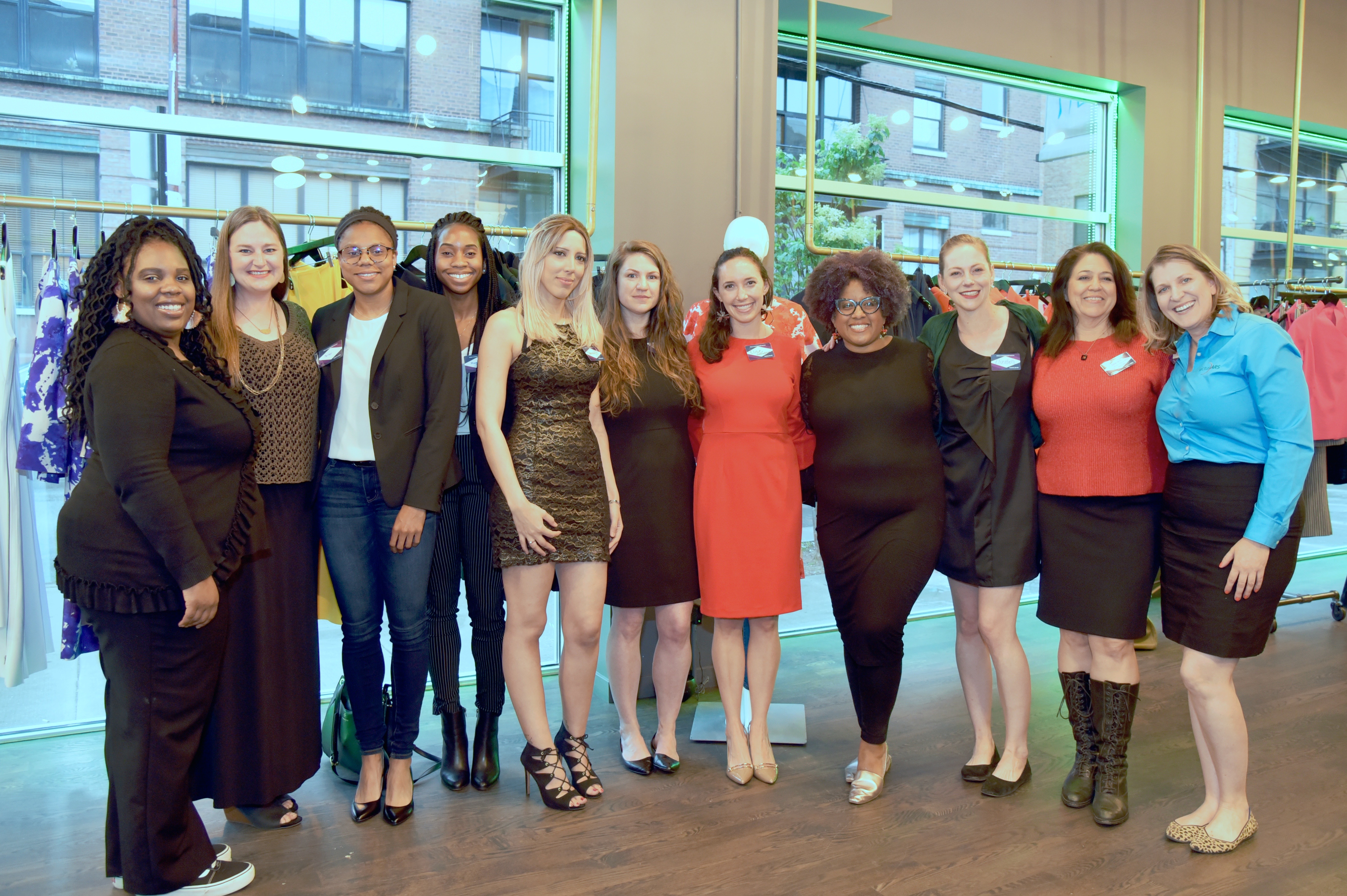 Cohort 1 of the Business Accelerator Program organized and run by DePaul's Women in Entrepreneurship Institute. (DePaul University/Kathy Hillegonds)
Cohort 1 of the Business Accelerator Program organized and run by DePaul's Women in Entrepreneurship Institute. (DePaul University/Kathy Hillegonds)With a goal of leveling the playing field in the startup world, DePaul’s Women in Entrepreneurship Institute uses academic research and programs to address the challenges and barriers faced by women entrepreneurs looking to open and grow their businesses.
One barrier is funding from investors, notes Abigail Ingram, director of the institute.
“Women have a difficult time accessing the capital needed to start or scale businesses," she says. "For example, in 2019,
Forbes research found that women received 2.7 percent of all of the venture capital dollars that were deployed into companies and three percent of angel investments despite owning 38 percent of U.S. businesses. That’s important because in order to build out a product or a platform or to scale a business, it can be essential to have access to outside capital.”
One way the institute is supporting women entrepreneurs is through its Business Accelerator Program, which graduated its first cohort in April 2019 and its second in March 2020. The nine-week program supports women business owners and provides access to the necessary tools to scale their businesses.
"This ground-up approach looks at what support systems need to be in place for women founders and also examines the business environment,” Ingram says. "Monthly programming follows weekly programming to know what the business founders are doing and what kinds of support they still need."
Between both cohorts of the program, 353 applications were received, of which only 16 were selected after an extensive interview process. Of the businesses selected, 50 percent were owned or started by women of color.
Ingram is pleased with the results from the program’s first cohort.
"Not only did they retain their current levels of employment, but they also added six new jobs to the Chicago job market in just over two months," she says.
Based on numbers obtained from the first two quarters of reporting in 2019, Ingram expects a 64 percent increase in the domestic revenues of the companies in 2020. Intangible growth beyond monetary gains was evident in the increased confidence levels among members to run their businesses and handle the associated financials.
"The 31 percent increase was a big win for Ingram. What makes the program at DePaul unique was its zero percent attrition rate," Ingram says.
Honora Wall, an online learning coordinator in DePaul’s Office of Academic Affairs, is founder of EduCalc and part of the first cohort of the Business Accelerator Program. Her company creates materials specially designed for students with dyscalculia, dyslexia, ADHD, high functioning autism and other disabilities, and was born out of the work Wall does with math students.
“There are very few materials made for these students and there’s very little information for teachers and tutors on how to best work with these students,” Wall says.
The Business Accelerator Program provided her with insights and knowledge about building and growing a business.
"Being surrounded by other women business founders helped my growing issues with my business feel more normal, helped to illuminate the path, and made the work of developing a business feel more attainable," she says. "The program really expanded my vision of what EduCalc could be."
Since the conclusion of the cohort, Wall has seen a great deal of expansion and growth in the metrics of her business. Her next goal is to open a facility in Chicago that addresses dyscalculia studying and works with students and educators. She’s developing online training for educators and administrators about what dyscalculia is and how to best support students who have it, and has workshops planned for Chicago, Florida and West Virginia in the coming months.
Like the companies it serves, the WEI program has undertaken a dramatic pivot as startup companies and small businesses are particularly vulnerable during the COVID-19 pandemic. The WEI has been focusing on assisting companies through cash crises, finding grants and loans to keep employees on payroll, strategizing and connecting founders to the founding members of the WEI, who are pivoting their businesses as well, says Ingram.
Going forward, Ingram is not stopping or slowing down.
"I want to see a lot of people supporting women-owned businesses in hopes of actual movement on the two percent investment figure,” she says. The ultimate success for Ingram and the rest of the board would mean seeing the numbers begin to move for women founders, both in terms of investment and in revenue potential.
More about the Women in Entrepreneurship Institute is available
on its website.